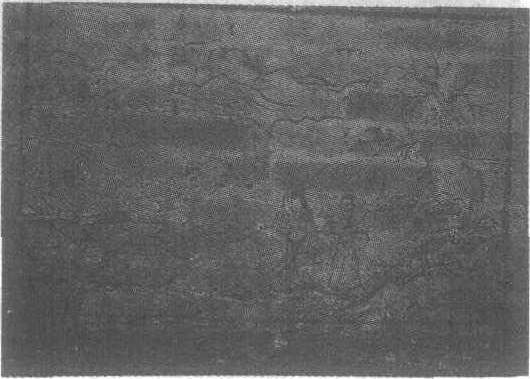冬归图壁画
元。纵53厘米,横91厘米。山东省济南市千佛山元墓前室西壁南端壁画。1985年发掘。画面中山峦隐现,云雾缭绕。近处为一段山路,路上有三人鱼贯而行。走在前面的是肩负圆形包袱的男侍,走在中间的主人戴黑帽,着红色厚袍,其后紧跟扛行李的男僮。周围的景色一片肃杀,老树仅剩秃秃的枝杈,地上是衰草枯叶。主人以风罩遮面的姿态更渲染了冬季寒风的凛冽。此画虽出自民间画工之手,却是一幅真实的风俗画,生动地反映了墓主人生前的行旅场景。

| 词条 | 冬归图壁画 |
| 类别 | 中文百科知识 |
| 释义 | 冬归图壁画元。纵53厘米,横91厘米。山东省济南市千佛山元墓前室西壁南端壁画。1985年发掘。画面中山峦隐现,云雾缭绕。近处为一段山路,路上有三人鱼贯而行。走在前面的是肩负圆形包袱的男侍,走在中间的主人戴黑帽,着红色厚袍,其后紧跟扛行李的男僮。周围的景色一片肃杀,老树仅剩秃秃的枝杈,地上是衰草枯叶。主人以风罩遮面的姿态更渲染了冬季寒风的凛冽。此画虽出自民间画工之手,却是一幅真实的风俗画,生动地反映了墓主人生前的行旅场景。
|
| 随便看 |
开放百科全书收录579518条英语、德语、日语等多语种百科知识,基本涵盖了大多数领域的百科知识,是一部内容自由、开放的电子版国际百科全书。